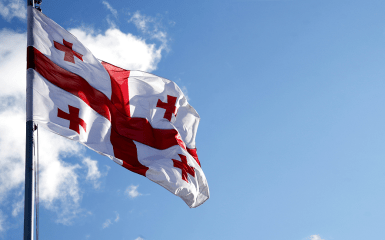In Georgia, after a rally on the evening of 1 of May against the law on 'foreign agents', eight injured protesters were hospitalised.
New protests in Georgia against the law on "foreign agents"
The Georgian Ministry of Health said that the victims suffered various types of injuries, including wounds to the face, head and various parts of the body, as well as intoxication and respiratory complications.
During the protests, 20 ambulances were on duty near the parliament in Tbilisi. Dozens of demonstrators, as well as one police officer, were treated on the spot.
As you know, in the evening of 1 May, thousands of people gathered outside the parliament demanding to withdraw the draft law on "foreign agents" ("On Transparency of Foreign Influence"), which MPs approved in the second reading.
The protesters erected barricades and burned garbage, trying to block the side entrances to the parliament.
Echo Kavkaza reported that special forces used water cannons and tear gas against the protesters near the official entrances to the parliament.
There were also reports of the use of rubber bullets. However, the Interior Ministry denied this information.
Commander of the Georgian Legion comments on the actions of the authorities in Georgia
According to the commander of the Georgian Legion, Mamuka Mamulashvili, Russia has been able to invest huge amounts of money in Georgia's political direction.
Georgian collaborators, like former Prime Minister Ivanishvili, infiltrated Georgian politics with the promise that the government would lobby for Georgia's accession to NATO and the European Union. In reality, we got a completely different picture. Georgia began to fall out of the Western mainstream and the mainstream of democracy in general. They deceived the people.
He believes that now Georgia has a government that functions like a subdivision of the Russian FSB.



